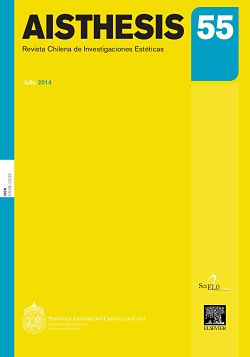Lyndonizing Barry: A Hegelian Zoom
Main Article Content
Abstract
The following essay it’s an analysis of Stanley Kubrick’s Barry Lyndon, from some notions proposed by G. W. F. Hegel in The Phenomenology of Spirit. Particularly, how the use of “zoom in” in the film makes possible mediation between Redmond Barry’s individual “I”s, articulated as moments of a logical subjective movement, which accounts for the negative nature of the identity. For that purpose, two specific scenes of the film are analyzed, first, his escape from the British Army and Lady Lyndon’s appearance. It is argued how, in each of them, the zoom proposes the becoming of Other, which denies both the protagonist and the spectator of the film.
Downloads
Article Details

This work is licensed under a Creative Commons Attribution-NonCommercial-ShareAlike 4.0 International License.
All contents of this electronic edition are distributed under the Creative Commons license of "Attribución-shareAlike 4.0 Internacional" (CC-BY-SA). Any total or partial reproduction of the material must mention its origin.
The rights of academic works published in this publication belong to their authors., who grant to AISTHESIS: Revista Chilena de Investigaciones Estéticas the license for its use. The management of the permits and the authorization of the publication of the images (or of any material) that contains copyright and its consequent rights of reproduction in this publication is the sole responsibility of the authors of the articles
